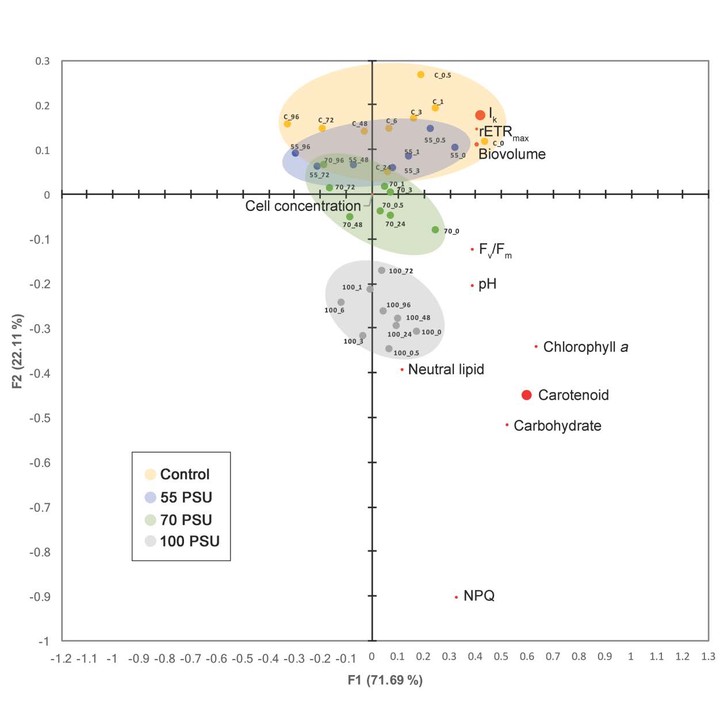 CA biplot of various physiological parameters and salinity levels.
CA biplot of various physiological parameters and salinity levels.
Abstract
Evaporation from culture ponds and raceways can subject algae to hypersalinity stress, and this is exacerbated by global warming. We investigated the effect of salinity on a marine microalga, Microchloropsis gaditana, which is of industrial significance because of its high lipid-accumulating capability. Both short-term (hours) and medium-term (days) effects of salinity were studied across various salinities (38, 55, 70 and 100 PSU). Salinity above 55 PSU supressed cell growth and specific growth rate was significantly reduced at 100 PSU. Photosynthesis (Fv/Fm, rETRmax and Ik) was severely affected at high salinity conditions. Total carbohydrate per cell increased ~1.7 fold after 24 hr, which is consistent with previous findings that salinity induces osmolyte production to counter osmotic shock. In addition, accumulation of lipid increased by ~4.6 fold in response to salinity. Our findings indicate a possible mechanism of acclimation to salinity, opening up new frontiers for osmolytes in pharmacological and cosmetics applications.